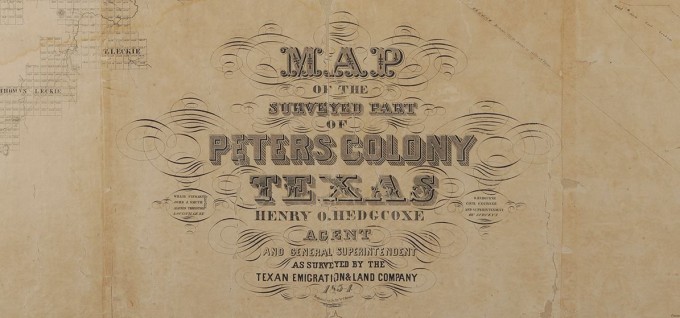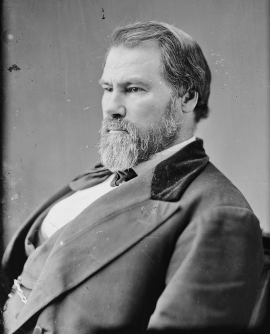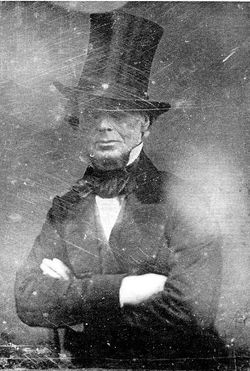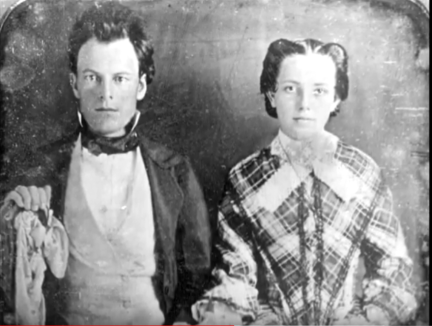
The Hedgcoxe War of 1852 resulted from the dispute and subsequent tensions between the colonists and the Texas Emigration and Land Company, also known as the Peters Colony. The colonists believed that the land company was attempting to invalidate their land claims. The Texas Emigration and Land Company was no stranger to controversy. Opposition to their “villainous tyranny” had been going on for years. Selected land locators were appointed to defend the colonists at a meeting held in the spring of 1849 in Henderson County. The land locators urged the colonists of the Peters Colony to hold mass meetings and elect delegates that would represent them at a general assembly held in Dallas on May 21, 1849. However, the land controversy attracted politicians and land speculators, who took an interest in the issue. Samuel Bogart won the senatorial election over John H. Reagan because Bogart was willing to make extensive promises to the colonists concerning their rights to the land. What started as a land rights issue turned into an important political topic for the denizens of North Texas.

John H. Reagan
On February 10, 1852, the Texas state legislature passed a compromise law in the hopes of satisfying both the land company and the colonists. According to the compromise law, all lawsuits between the Texas Emigration and Land Company were to be withdrawn. Furthermore, new guidelines were to be given to the colonists and the time allotted for filing claims would be extended. The land company was given 1,088,000 acres of land as a part of the compromise. The colonists, however, were not satisfied. They vehemently opposed the compromise bill, fearing the possible sale of some claims and angry that the land company received such a generous concession. Thus, the controversy continued.

Henry O. Hedgcoxe
The anger of the colonists was compounded when, in May of that same year, Henry Oliver Hedgcoxe published an “explanation” of the compromise bill for the colonists while also reiterating the colonists had until August 4 to establish their claims with him. Hedgcoxe was the appointed agent of Texas Emigration and Land Company since 1847 and was known to have a sarcastic and haughty personality. Unfortunately, the language of his proclamation reflected his unlikable disposition and bordered on the autocratic, stoking the flames of rebellion.
During a meeting in Dallas after the Hedgcoxe proclamation, John H. Reagan made a speech to the disgruntled colonists which was published in the Dallas Herald. The speech denounced violence and encouraged moderation (at least on the surface). However, his choice of language, perhaps by design, agitated tensions further. Reagan called on a “united resistance” to drive Hedgcoxe from the colony. Igniting more unease, Ebenezer Allen, the attorney general, issued an opinion upholding the compromise law.

John J. Good and his wife Susan on their wedding day in 1854
On July 12 and 13, a committee consisting of six men broke into Hedgcoxe’s office in Collin County and conducted an “investigation” of Hedgcoxe’s records. On July 15, at a mass meeting held in Dallas, the committee denounced Hedgcoxe and proclaimed him and his dealings to be corrupt, fraudulent, and evil. John H. Reagan made another speech urging the colonists to abstain from violence. However, that very night, John J. Good, a militia commander, led a group of about 100 armed men to Hedgcoxe’s office. Hedgcoxe was ordered out of the colony and he fled to Austin the next day. His and the company’s papers and documents were seized and brought to Dallas to be deposited in the Dallas County Courthouse.
Although Good and the meeting members celebrated what they saw as a success against tyranny, the colonists were in an uproar. While some supported the actions of Good, many feared that the actions of Good and his men would jeopardize their land claims, especially those who filed under Hedgcoxe. Meetings were held by colonists in the following days. The meeting in McKinney called the attack “unwarranted” and called for the return of the documents. However, the meeting of the colonists in Denton County agreed with the actions of Good and asserted that they would defend their homes “peacefully if we can- forcibly if we must.”
On January 1, 1853, the company published a conciliatory letter “in an attempt to undo the mischief of Hedgcoxe’s arrogance.” An attempt to repeal the compromise bill failed in the Texas legislature but an amendment was made on February 7, 1853. The amendment allowed colonists to file their claims directly with the land office, Hedgcoxe’s papers were made a part of the archives, and the colonist’s claims had to be located on an official map. Furthermore, other concessions were made to the benefit of both the colonists and the land company. For the most part, this amendment fixed the issues that the colonists of North Texas had with land claims and the period of the Hedgcoxe War, or the Peters Colony Rebellion, came to an end.
For More Information:
Connor, Seymour. The Peters Colony of Texas. Austin: The Texas State Historical Commission. 1959.
“Hedgcoxe War” from the Texas State Historical Association
“The Hedgecoxe War” Texas Historical Marker Narrative
